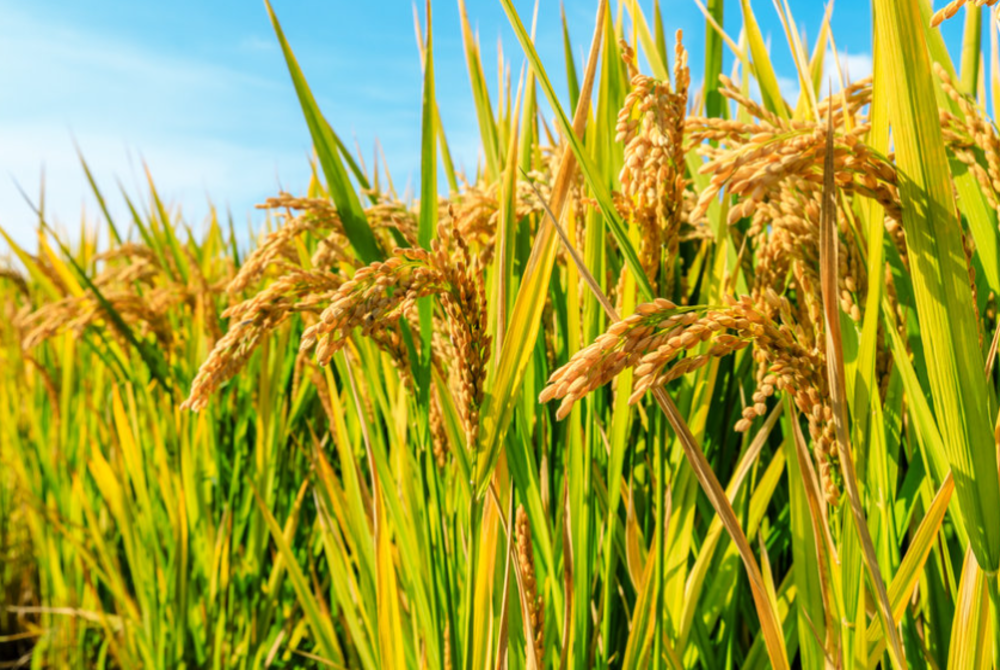Collaboration among various parties guarantees national rice supply
12 Aug 2022 09:28am

Norsida said padi farming plays a key role in ensuring the country's food supply - 123RF Photo
A lecturer at the Department of Agribusiness and Bioresource Economics, Faculty of Agriculture, Universiti Putra Malaysia (UPM), Associate Professor Dr Norsida Man said this indirectly raised the issue of food security, which is categorised as one of the threats from a global human security perspective.
Is the country prepared to face this situation?
Food security can be defined as access for all residents to enough food to live a healthy and active life.
It is particularly important in matters related to population growth, food security, nutritional deficiencies, access to food and resource sustainability.
In Malaysia, various policies have been implemented by the government through the Ministry of Agriculture and Food Industry (MAFI) to ensure that the food supply is always sufficient.
They included the First National Agricultural Policy to the Third National Agricultural Policy (1984-2010), the National Agro-Food Policy (2011-2020) and the National Agro-Food Policy 2.0 (2021-2030) and making padi production the main focus in every National Agricultural Policy.
Norsida said padi farming plays a key role in ensuring the country's food supply.
"Nevertheless, various problems, issues and challenges continue to cropped up every year from this sub-sector in maintaining or increasing its function," she told Bernama in a written interview recently.
She said a comprehensive understanding of the country's padi farming problems could help the country to unravel the food supply guarantee issue.
Among the problems that are synonymous with the padi and rice sub-sector are decrease in farming area, drop in the number of farmers, less dynamic infrastructure and facilities, an increase in the cost of inputs such as fertilisers and seeds, weather and climate change and a lack of exposure to the application of modern technology in agriculture.
Involvement of government, non-government agencies to improve padi industry
Basically, the strengthening of the entire supply chain needs to be made the main agenda in increasing the capacity of the country's padi industry, and the need for government and non-government agencies to work together in making the effort a success, said Norsida.
"For example, the Muda Agricultural Development Authority (MADA), the Kemubu Agricultural Development Authority (KADA) and several Integrated Agricultural Development Areas (IADA) need to be involved in monitoring the progress of padi farming in Malaysia, especially in the management of agricultural infrastructure, strengthening support services and farm management, providing consultation, and strengthening service agencies," she added.
As for the Department of Agriculture, it is responsible for the development of padi farming outside the "rice bowl” area.
Norsida said the active involvement of private companies such as Padiberas Nasional Bhd (BERNAS), National Farmers Organisation (NAFAS), FGV Holdings Bhd and others are seen as pioneers in the innovation of the padi and rice sub-sector and ensuring the sustainability of the country's padi and rice industry.
"BERNAS, for example, continues to carry out its responsibility in balancing the needs of the country, consumers and rice farmers. After taking over the role of the National Padi and Rice Board more than two decades ago, BERNAS now has an important role in guaranteeing the country's food security," she said.
This, she said, is because one of BERNAS' social responsibility is to manage and maintain the national rice stockpile.
Need to balance rice supply with import of the commodity
Malaysia imports approximately 30 per cent of its rice supply. From a positive point of view, the import of rice guarantees the rice in the event of a disruption in the supply in the country.
It is the responsibility of BERNAS to balance the supply of rice by importing the commodity as agreed by the government.
BERNAS, FGV and NAFAS are also actively developing large-scale padi cultivation areas, the SMART SBB throughout the country.
"This programme is one of the initiatives introduced by the government to increase the income of padi farmers in the country by coordinating farm management systems in groups to achieve economies of scale," said Norsida.
The implementation of SMART SBB is in line with the goal of the Ministry of Agriculture and Food Industries (MAFI) to increase the rate of Self-Sufficiency Level (SSL) of the country's rice by 75 percent under the 12th Malaysia Plan.
Country’s food security
The country's food security is not only focused on the production of the staple food, which is rice, but also other food sources such as chicken, eggs, meat.
However, the livestock industry is facing a critical problem at the moment because of the increase in the price of animal feed.
To overcome the problem, BERNAS, together with FGV Integrated Farming, has recently developed and launched a high-quality animal feed that produces a new formulation of chicken feed using by-products from rice mills and padi husk that are highly nutritious.
"The strategic collaboration between these two private companies proves their determination in optimising the use of resources, strengthening the value chain of agro-food products for the domestic market, as well as supporting the main core of the country's food security framework," she said.
In terms of research and development, continuous efforts in producing agricultural inputs such as quality seeds and fertilisers are essential, with various initiatives being carried out between MAFI, the Ministry of Science, Technology and Innovation (MOSTI), the Malaysian Agricultural Research and Development Institute (MARDI), the Institute of Higher Education and related agencies. - BERNAMA










